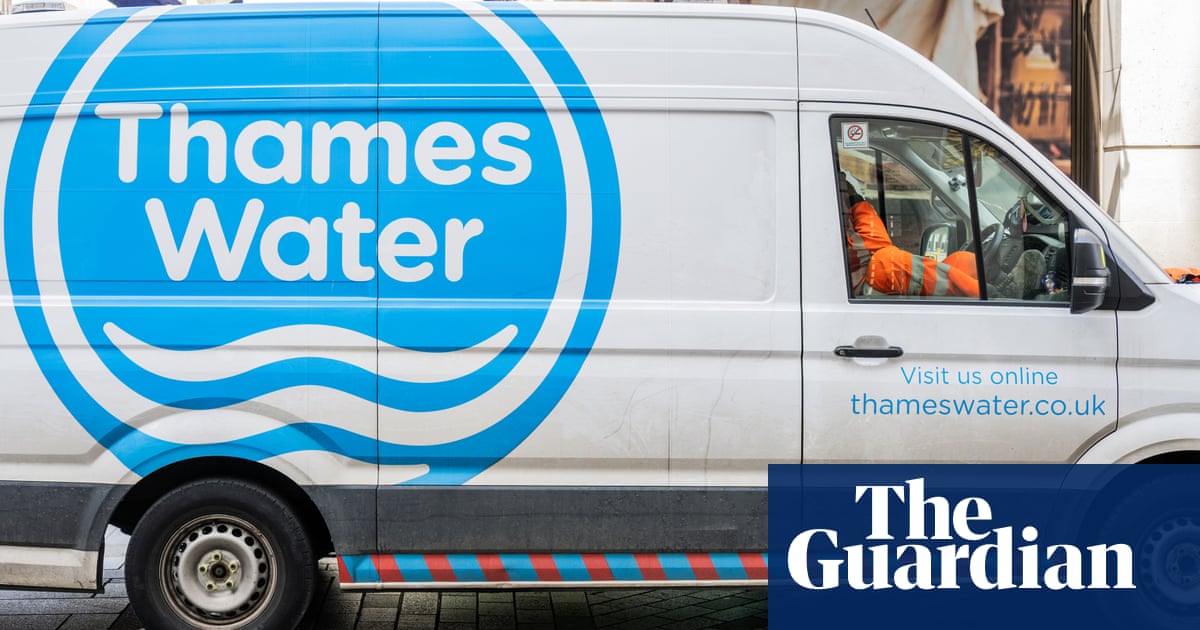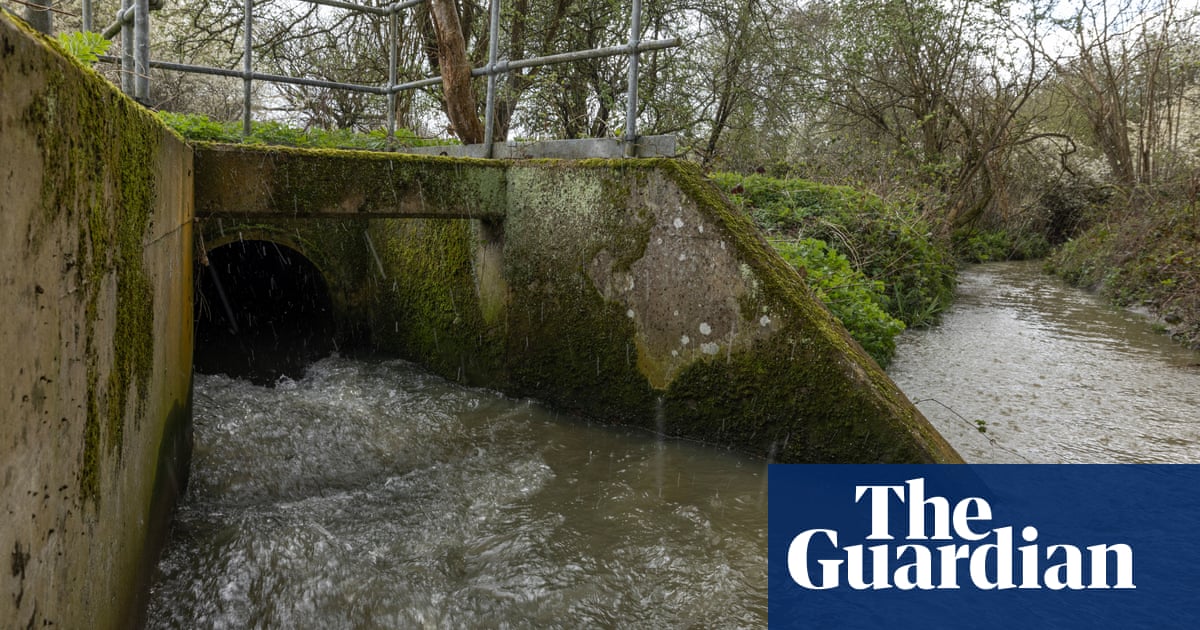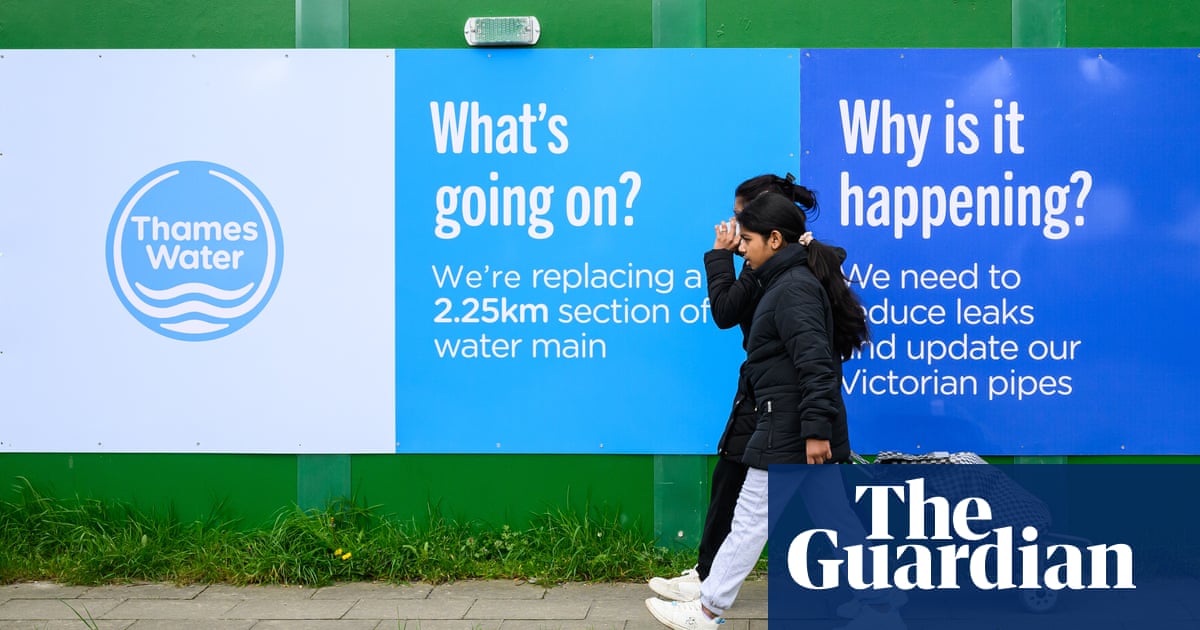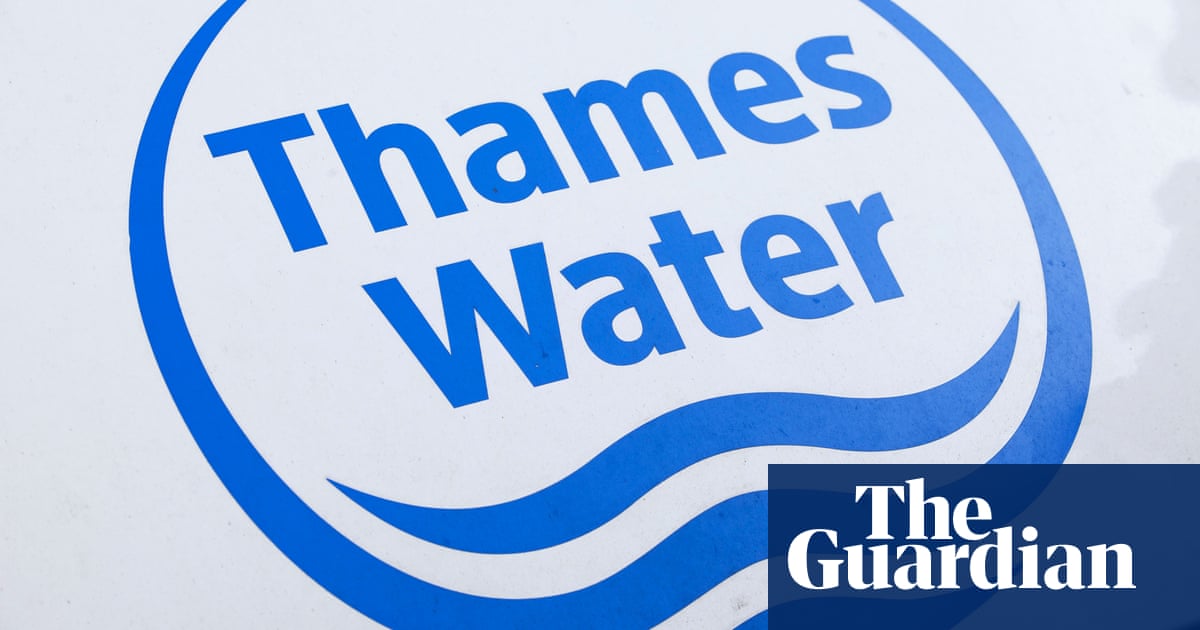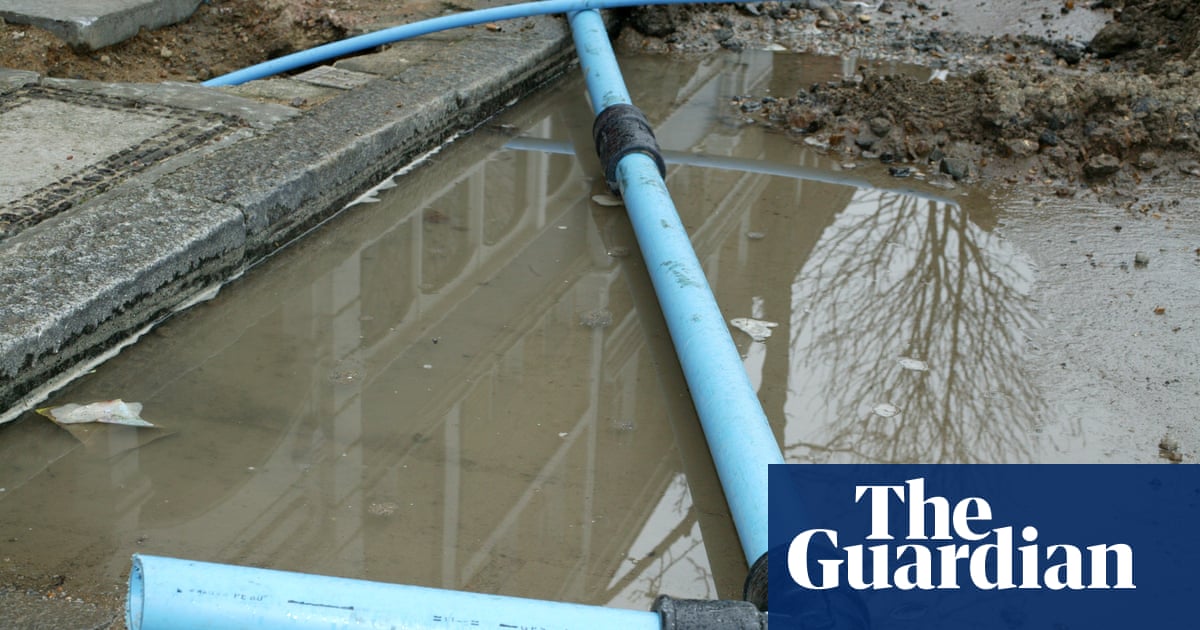
Thames Water has been told by the Environment Agency it needs to do more to fix the 630m litres of water it leaks a day before it starts taking water from the River Thames or from Wales to tackle drought problems.
The company has published its ideas for tackling climate crisis-induced droughts across London and the south-east, which include abstracting millions of litres a day from the River Thames and replacing it with treated effluent, to taking 155m litres a day from Wales.
But in an analysis of the company’s 2024 draft water resources plans, the Environment Agency says Thames Water needs to think again and justify its decisions.
The agency is ordering the water supplier to do more to fix its leaks. “Thames Water leaks more water than any other company. The company has struggled to maintain its planned level of leakage, especially over the past year,” the report says. “Given the size of the leakage issues faced by Thames Water, we expect the company to invest in new research and development to identify ways it could substantially reduce leakage further than the 50% reduction target by 2050.”
The Environment Agency says security of water supply to the south-east and London will be at risk if the company does not tackle its leaks and reduce customer demand for water. It says the cheapest options put forward by Thames may not provide the long-term benefits required.
Thames Water’s draft water resources management plan 2024 outlines a series of projects designed to find new water resources for London and the south-east in the years ahead as drought becomes a regular feature. Consultation on the document closed this week.
The company is promoting a “water recycling” project as the cheapest and quickest solution, which involves abstracting 75m litres of water a day from the River Thames at Teddington, west London, and replacing it with treated sewage from the nearby Mogden sewage treatment works.
Environmental concerns include increased water temperatures and a change in the salinity of the river, which will affect fish and biodiversity. The Environment Agency says it has reservations based on impact on the environment and about the proposal’s long-term viability. “Given that the Teddington direct river abstraction has not yet been shown to be feasible or environmentally acceptable, the company should ensure alternatives are progressed. Thames Water should ensure any options selected are resilient, reliable and do not cause any adverse environmental impacts,” it says.
It also has significant doubts about another Thames Water plan to tackle future droughts in the south-east by taking 155m litres of water a day from Wales via the River Severn. “The Environment Agency is not convinced this is a viable solution,” the report says. “We have a number of concerns about its resilience, particularly in a changing climate.” It says the River Severn reached very low levels last summer and the water that Thames Water wants may be needed by other suppliers for their own drought resilience.
In a damning indictment of the water company’s failure to get a £250m desalination plant in east London running properly, the Environment Agency accused Thames Water of mishandling the asset.
“A number of other water companies plan to use desalinated water for future water supplies. Thames Water already has this ability, however the company has not managed the asset well and this vital resource has not been working for many years … The company must either commit to improving the asset to ensure it is reliable for regular operation or decide to decommission and select a new option,” it says.
“The company cannot continue to mishandle this asset when it provides crucial resilience to London in a drought.”
The agency also says Thames Water must carry out more work to assess the impact of plans for a vast new reservoir in the Oxfordshire countryside, south-west of Abingdon.
It says Thames Water faces some of the biggest challenges of any company in England. “This requires some difficult decisions. We acknowledge alternative schemes would cost more, but the company needs to consider whether the short-term costs are outweighed by better long-term benefits,” the report says.
Thames Water said the south-east of England was one of its driest regions and London got less rain than Rome, Istanbul and even Sydney.
The company said: “Our draft plan highlights the significant future shortfall in water resources in our supply area and the actions we plan to take to maintain the balance between water supply and demand. It sets out how we’re going to tackle leaks, make every drop count and invest in new water infrastructure. We must make bold decisions and act now to ensure we have the water we need in generations to come.”




